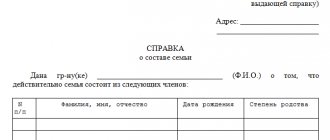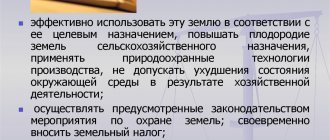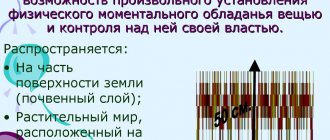SNT stands for accompanying invoice for goods. This document is in electronic form, and its form, procedure, terms and cases in which it is necessary are established in accordance with the Tax Code.
Set up work with SNT in 1C at First Bit
The Ministry of Finance presented a draft order “On introducing amendments and additions to some orders of the Ministry of Finance of the Republic of Kazakhstan”, which contains some additions and changes to the order of the first Prime Minister of Kazakhstan - the Minister of Finance of Kazakhstan number 1424 dated December 26, 2019, which determines the list of products , for which the presence of SNT is mandatory, as well as all norms for the preparation and circulation of this documentation. The project was approved by order number 531 dated June 4, 2021 “On the timing of the launch of mandatory registration of SNT.”
The concept of retail trade has been clarified - a type of trading activity that is associated with the sale and purchase of products that are subsequently used for personal, household or other purposes that are in no way related to commercial activity.
New dates for the start of issuing SNT for some products have been approved:
- biofuel, the production and circulation of which is regulated by the current law dated November 15, 2010 on state regulation - postponed from July 1, 2021 to October 1, 2021;
- some products of the oil industry, which are regulated by the law of July 20, 2011, are moved from July 1, 2021 to October 1, 2021;
- alcoholic products and ethyl alcohol, the production process and circulation of which are regulated by the law of July 16, 1999, will be moved from July 1, 2021 to October 1, 2021;
- tobacco products, which are regulated by the law dated 06/12/2021 - moved from 07/1/2021;
- products that are included in the List of products in respect of which Kazakhstan imposes customs duties upon import, which are lower than the duties of the Unified Customs Tariff established during Kazakhstan’s accession to the World Trade Network (except for the ninth item of this List) - be moved from 02/1/2022 to 01/08 .2022;
- products that are exported from the territory of the state to countries that are members of the Eurasian Economic Union - postponed from 07/1/2021 to 10/1/2021;
- products that are imported into the territory of the state from countries that are members of the Eurasian Economic Union (EAEU) - postponed from 07/1/2021 to 10/1/2021;
- goods that must be labeled according to the legislation of the Republic of Kazakhstan, as well as on the basis of international agreements, will be moved from 02/1/2022 to 08/1/2022;
- products for which an invoice is to be issued using a virtual warehouse must be moved from November 1, 2021 to January 1, 2022.
When registration of SNT is not required
In the following cases, it is not necessary to issue an SNT:
- retail sale of products that will be used by the buyer for personal or other purposes that are not related to commercial activities;
- import (export) of products to (from) the territory of Kazakhstan from other countries (including members of the EAEU) by transportation through main pipelines, as well as through power lines;
- transportation of products (except for alcohol) within one person or between structural divisions of one person across the territory of the Republic of Kazakhstan;
- transportation of returnable containers, if the container is not included in the WTO exemption list;
- import of products into Kazakhstan from countries that are members of the EAEU, in the case where the initial point of departure is located in a country that is not a member of the EAEU;
- import of products into Kazakhstan from countries that are members of the EAEU, in the case where the final point of transportation is a country that is not a member of the EAEU, except for goods that are included in the WTO exemption list, as well as excisable products and products for which the ESF is issued through virtual warehouse;
- transportation of products that are in service with the Republic of Kazakhstan (or military formations of other states that are temporarily located in Kazakhstan) across the state border of Kazakhstan with the countries of the EAEU for its repair, equipment or modernization.
INNER ORDER RULES
garden non-profit partnership "Vidny"
(project)
TERMS AND DEFINITIONS
The horticultural non-profit partnership “Vidny” (hereinafter referred to as the partnership) is located at the address: 140755, Moscow region, Shatura urban district, Luzgarino village.
Details: INN 5049005464, OGRN 1025006471160, KPP 504901001, r/s. 40703810740460100013 at OJSC SBERBANK OF RUSSIA, Moscow, C/S 30101810400000000225, BIC 044525225.
Website: snt-vidny.rf.
The partnership includes land plots of owners and common property.
Gardener - a person who conducts gardening on the territory of the partnership.
A garden house is a building for seasonal use, designed to satisfy citizens’ household and other needs related to their temporary stay in such a building.
Garden plot is a plot of land intended for recreation of citizens and cultivation of agricultural crops by gardeners for their own needs with the right to place garden houses and outbuildings.
Outbuildings – sheds, bathhouses, greenhouses, sheds, cellars, wells and other structures and structures (including temporary ones) intended to satisfy gardeners’ household and other needs.
General use property – capital construction projects and general purpose land plots located within the boundaries of the partnership territory, the use of which can be carried out exclusively to meet the needs of gardeners (passage, travel, supply of electricity, water, security, collection of solid municipal waste and other needs), and also movable property created or acquired for the activities of the partnership.
The general territory of the partnership is a part of the land plot located on the territory of the partnership and not related to the land plots owned by the owner gardeners.
Street is a public area intended for the movement of vehicles and pedestrians, including a two-lane roadway, curbs and ditches.
Passage - an area intended for the movement of vehicles and pedestrians, including a single-lane roadway and shoulders.
Red lines are the boundaries of streets and driveways along the fence lines of garden plots.
The infrastructure of a partnership is a set of facilities and management bodies necessary to ensure normal living conditions of the partnership. Infrastructure includes:
roads, streets, driveways, passages from the boundaries of the partnership to the boundaries of individual garden plots;
public buildings and structures;
power lines and transformer substations;
water supply system - pumping station, water towers and water supply networks;
a common fence along the boundary of the partnership.
CHAPTER 1 GENERAL PROVISIONS
- These rules govern relations arising between gardeners on the territory of the partnership. Their goal is to create favorable conditions for gardening, ensuring public order, safety and preservation of the environment in the partnership.
- Relationships between gardeners should be built on respect and mutual assistance to each other.
- Owners of garden plots must provide the board of the partnership with information about changes in contact information about themselves or their authorized representative (if any). Contact information includes: passport details; address of registration or place of residence; certificate of state registration of ownership of the land plot and garden house; telephone; email address (if available).
If a proxy represents the interests of the owner, a notarized copy of the power of attorney and the telephone number of the proxy are provided. If the garden plot is rented out, then information about the tenants and rental terms, copies of tenants’ passports, and telephone numbers are provided.
- Unauthorized persons who are not tenants, relatives or guests of the gardeners are not allowed to be on the territory of the partnership. If suspicious persons appear, the gardener must report this to the duty officer of the partnership.
- Unauthorized persons (for example, builders) may be on the gardener's garden plot only with the consent of the gardener.
- The board of the partnership has the right to conclude an agreement on seasonal trade in food and essential goods on the territory of the partnership.
- If a threat to the common property of the partnership is detected, as well as cases of break-ins of garden houses and outbuildings, it is necessary to report this to the duty officer or the board of the partnership.
- The partnership is not responsible for the theft of personal property of gardeners on the territory of the partnership.
- All gardeners must participate in public works (subbotniks) appointed by the board to improve the public territory of the partnership. A subbotnik missed for a good reason may, in agreement with the board of the partnership, be worked at another time or compensated in cash in the amount established by the general meeting of the members of the partnership.
- The gardener is obliged to comply with these rules, maintain garden houses, outbuildings, driveways, recreational areas, the territory adjacent to the site, and elements of the partnership's infrastructure in proper condition (in accordance with fire safety requirements, environmental requirements). Conduct development and reconstruction of buildings on his garden plot in accordance with current rules and regulations (SP 53.13330.2019 “Planning and development of the territory where citizens conduct gardening. Buildings and structures”).
- Monitoring compliance with these rules is carried out by the board of the partnership.
- The right to change, supplement, revise, suspend or cancel these rules belongs to the general meeting of members of the partnership. A decision on such an issue is made by a majority vote (more than 50%). The Board of the Partnership has the right to issue temporary permits to carry out any actions or work that go beyond the scope of these rules, if the issuance of such permits does not contradict the interests of the members of the Partnership.
CHAPTER 2.
PARTNERSHIP AFFAIRS MANAGEMENT
- The management of the affairs of the partnership is carried out by the board of the partnership. Control over the financial and economic activities of the partnership is carried out by the audit commission of the partnership.
- All membership, target fees and other payments are subject to payment in the amounts and within the time limits established by the Charter of the partnership.
- For late payment of membership and target fees and other payments, a penalty is established in the amount established by the Charter of the partnership. .
- A gardener in his garden plot and the adjacent territory does not have the right to interfere with the performance of official duties by the technical staff of the partnership (electrician, plumber).
- Complaints concerning gardeners and the management of the partnership must be submitted in writing to the chairman of the board. Decisions on them must be made within 10 days after filing a complaint.
- To post notices relating to the activities of the partnership, an information stand must be placed near the premises of the management board of the partnership.
- The office hours for gardeners are posted on the notice board.
CHAPTER 3 ORDER OF USING COMMON FACILITIES
- Gardeners are obliged to take care of the common property of the partnership and not interfere with the use of it by other gardeners.
- If malfunctions are detected in the infrastructure facilities of the partnership, gardeners must immediately report this to the duty officers or the board of the partnership so that appropriate measures can be taken.
- If, as a result of the use of common property by a gardener, their guests or other persons invited by him (for example, builders), damage is caused to the property, the culprit, as a result of whose actions the damage occurred, is obliged to restore the damaged property at his own expense, or reimburse the partnership for the costs incurred for its restoration .
- Unauthorized connection to the electricity network and water supply system of the partnership is prohibited.
- The land plot of the partnership consists of common lands and lands of individual garden plots. Public lands include lands occupied by roads, streets, driveways, as well as sites and areas of public facilities.
- Access roads within the boundaries of the general territory of the partnership must ensure free passage of vehicles to each garden plot and public facilities.
- At least two entrances must be provided to the general territory of the partnership. The main entrance connecting the road territory of the partnership with the nearest populated area must be equipped with a gate (barrier) at least 4.5 meters wide and a wicket at least 1 meter wide.
- The territory of the partnership must be fenced. A fence with a height of at least 1.5 meters must be located at a distance of at least 5 meters from garden houses and other buildings located on the territory of the partnership.
- At the main entrance there should be a stand with the name of the partnership and a schematic plan of the territory of the partnership.
- Signs with their names should be placed at street intersections.
- At the main entrance to the territory of the partnership, a guardhouse must be placed for those on duty. The gatehouse premises must be provided with a telephone connection that allows calling emergency medical care, fire, police and emergency services.
- On the main street of the association there must be external lighting, which is controlled from the gatehouse.
- It is prohibited to carry out any excavation work outside the territory of a personal garden plot. Work on public lands is carried out only with the consent of the chairman of the board.
- Buildings and structures for public use must be at least 4 meters away from the boundaries of personal garden plots.
- It is prohibited to organize waste dumps on the territory of the partnership and beyond. Household waste should generally be disposed of in garden areas. For non-recyclable waste (glass, metal, polyethylene, etc.) a site for installing containers must be provided in public areas. The site must be fenced on three sides, have a hard surface and be located at a distance of at least 20 meters from the boundaries of the garden plots.
CHAPTER 4 STANDARDS FOR PLACEMENT OF GARDEN AND RESIDENTIAL HOUSES, OUTCOMMON BUILDINGS, TREES AND SHRUBS
- A garden house, outbuildings and structures can be erected on a garden plot, including greenhouses, a summer kitchen, a bathhouse (sauna), a shower, a shed or a garage for a car.
- Gardeners must build a garden house and outbuildings, guided by current building codes, including those specified in paragraph 10 of Chapter 1 of these rules.
- It is not allowed to organize the drainage of rainwater from the roofs onto the neighboring area.
- A sign indicating the lot number must be placed on the house. The distance from a detached garden house to the boundaries of an adjacent plot of land must be at least 3 meters. The distance between houses located on adjacent garden plots must be at least 6 meters.
- It is recommended to install mesh fencing around the perimeter of individual garden plots. By mutual written consent of the owners of neighboring plots (agreed upon by the board of the gardening and dacha association), it is possible to install other types of fencing. It is allowed, by decision of the general meeting of members of the partnership, to install blind fences on the side of streets and driveways.
- Fencing of garden plots on the side of streets and driveways should be no more than 1.8 meters high.
- It is prohibited to plant trees and shrubs under power lines.
CHAPTER 5 OPERATION OF ROADS AND USE OF VEHICLES
- The movement of any vehicles on the territory of the partnership must be carried out in accordance with the current Traffic Rules. In particular, the speed on roads and streets should not exceed 20 km/h.
- The Partnership does not provide permanent parking space for cars, trailers, boats or other vehicles on public property. All vehicles must be located on the gardener’s personal property.
- The partnership is not responsible for the disappearance, destruction, theft or damage caused to a vehicle left by the gardener on the public territory of the partnership.
- Short-term placement of cars of gardeners and their guests on public territory is allowed. Short-term parking should not block driveways and passages for other traffic participants. The Partnership is not responsible for damage to or loss of the vehicle listed above.
- Car repair work on public property is prohibited.
- It is prohibited to store piece, bulk and other materials directly on streets and roads, as well as along them.
CHAPTER 6
ELECTRIC SUPPLY
- Utility services for power supply to gardeners on the territory of the partnership are provided by the supplier (JSC Mosenergosbyt) in accordance with current tariffs on the basis of an energy supply agreement concluded by the supplier with the subscriber (gardener).
- Maintenance and repair of electrical networks is carried out by the supplier at his expense to the delivery point, which is usually located in close proximity to the gardener’s site.
- Maintenance and repair of the electrical network, electrical appliances and devices used directly on the territory of the garden plot is carried out at the expense of the gardener. An application for repair work can be submitted through the board or duty officers.
- On the territory of the partnership, a temporary shutdown of the power supply may be carried out if a threat of an accident, fire or danger to the life and health of people is detected.
CHAPTER 7
WATER SUPPLY
- The territory of the partnership must be equipped with a water supply system that meets the requirements of SP 53.13330.2019 “Planning and development of the territory of gardening by citizens. Buildings and constructions" . The supply of domestic and drinking water can be made both from a centralized water supply system, and autonomously - from shaft and shallow-tube wells in compliance with the requirements set out in SanPiN 2.1.4.1110.
- The supply of water obtained from the artesian water well of the partnership is carried out for a fee provided for in the income and expenditure estimate adopted at the general meeting of the partnership.
- The gardener must provide free access to the water main laid directly to his garden plot for inspection or repair. To do this, all plantings and materials must be removed at a distance of 0.5 meters from the highway.
- It is prohibited to unauthorizedly close or open the gates and valves of the partnership’s water main and to leave taps open at night and to prevent water leaks.
- At the end of the summer season and after the termination of the centralized water supply, gardeners are required to prepare the part of the water supply system located on their plots for winter:
— disconnect individual water pipes from the main pipes;
— open the taps and drain the water.
- Gardeners are required to report any detected defects in the main pipes to the duty officer or the board of the partnership.
- The board of the partnership has the right to turn off the water supply to the gardener’s plot if he does not pay for water consumption.
CHAPTER 8
WASTE HANDLING
- It is prohibited to litter the territory of the partnership with small household waste (food wrappers, cigarette butts, cigarette packs, bottles, bags, etc.).
- It is prohibited to throw branches and mowed grass into ditches.
- Small-sized solid household waste must be stored in special containers located on a special site outside the fenced territory of the partnership. Scrap metal is stored separately.
- To dispose of bulky solid waste (furniture, household appliances, construction waste, etc.), the gardener must order a container from a specialized organization.
- Waste of plant origin (leaves, tops, branches, remains of fruits and vegetables, etc.) and food waste are disposed of by the gardener independently.
CHAPTER 9
FIRE FIGHTING, SANITARY AND ENVIRONMENTAL PROTECTION REQUIREMENTS MANDATORY FOR GARDENERS ON ITS TERRITORY
- In the summer, a container of water with a volume of at least 0.2 cubic meters should be installed near each garden house. meters.
- For firefighting purposes, the partnership must have a motor pump. The motor pump must be stored in a special room or under a canopy.
- Making fires and burning plant residues is permitted in compliance with environmental protection requirements and fire safety rules. It is prohibited to leave fires, flammable and spontaneously combustible substances lit on the site unattended, as well as to burn dry vegetation and its standing remains.
- A sign must be posted in the duty room (in the guardhouse) indicating the telephone number and address of the nearest emergency authority (unit).
- It is prohibited to litter the territory of the partnership, incl. small household waste (food wrappers, cigarette butts, cigarette packs, bottles, bags, etc.).
- It is prohibited to discharge liquid municipal waste on the public territory of the partnership. Disposal of secondary material resources into the environment and the discharge of fuels and lubricants are not allowed.
- Areas not visited by their owners for more than two years are subject to disconnection from the power grid for fire safety purposes.
CHAPTER 10. OPERATING MODE RELATED TO NOISE IMPACT
1. Construction and other noise-related work must be carried out during the day between 9.00 and 21.00.
2. The volume of radios, televisions, musical and construction instruments and other sound-producing devices must be adjusted so as not to disturb gardeners in neighboring areas.
CHAPTER 11. RULES FOR KEEPING ANIMALS AND POULTRY
1. The procedure for construction, composition, size and purpose of outbuildings for keeping small livestock and poultry, as well as requirements for compliance with sanitary and veterinary rules are established in accordance with the regulatory legal acts of local government bodies.
2. It is prohibited to leave pets and poultry unattended. They should not cause harm to the partnership, neighbors or disrupt the sanitary condition of the garden plot. The gardener bears the burden of responsibility for damage caused by his animals and birds.
3. Measures must be taken to prevent animals from independently leaving the garden area where they are kept. Guard dogs and fighting dogs are allowed to walk wearing collars and muzzles.
CHAPTER 12.
RESPONSIBILITY FOR VIOLATION OF INTERNAL REGULATIONS.
- Gardeners who violate these rules themselves, members of their families, or guests may be subject to sanctions provided for by the Charter of the partnership. For systematic violation of the rules, the gardener may be expelled from the membership of the partnership, and may also be held accountable in accordance with the Civil Code of the Russian Federation.
- If the gardener ignores the requirements of the board of the partnership to eliminate violations of an environmental and fire safety nature associated with his failure to comply with environmental, fire safety standards and rules, the board is obliged to send a corresponding application to the violator to the state environmental control authorities and the fire safety supervision service.
Dates for issuing SNT
SNT must be issued before the start of transportation or the trading process:
- transportation and trade of products on the territory of Kazakhstan;
- import of products into Kazakhstan from countries that are not members of the EAEU (products for which customs clearance has been completed).
Until crossing the border of the Republic of Kazakhstan:
- import of products to Kazakhstan from EAEU member countries.
At the checkpoint (automobile) on the border of the Republic of Kazakhstan when crossing it:
- if transportation is carried out between two EAEU member countries.
No later than one day (working day) after:
- the day of departure or arrival of the air vehicle, if transportation is carried out by aviation;
- the day of formation of the document for transportation of products by rail, but no later than the day on which the products will cross the border of the Republic of Kazakhstan.
When selling within Kazakhstan:
- for retail sales to the end consumer no later than the 15th day of the month following the month of the transaction, indicating the monthly sales (SNT is issued on a voluntary basis);
- diesel fuel and gasoline, which are sold by gas stations using fuel cards or coupons, no later than the 20th day of the month following the month of the transaction, indicating the monthly sales;
- wholesale sales of products (except for excisable products) within the Republic of Kazakhstan to taxpayers engaged in retail sales, no later than 2 business days from the date of the transaction.
Clause No. 18: The recipient of the SNT is obliged to reject or confirm (using the ESF IS) the SNT no later than 10 days after registration of the SNT in the ESF IS, with the exception of transportation of products by any transport, when using which there is a period for rejecting or confirming the SNT of 20 days from the moment of registration of the document in the ESF IS.
SNT confirmation will not be required from the recipient in the following cases:
- sale of products to the final consumer;
- sale of products (except for excisable products) to taxpayers who are small entrepreneurs (accordingly, 24 articles of the Entrepreneurial Code);
- sale of products for export;
- if the SNT recipient is registered in an administrative-territorial unit of Kazakhstan where public telecommunication networks are not provided;
- for fuels and lubricants that use airports to refuel foreign aircraft on international flights.
Thus, persons engaged in retail sales will not require confirmation of SNT, except for the sale of alcohol and tobacco products.
The concept of SNT
SNT (garden non-profit partnership) is a non-profit structure established on a voluntary basis with the aim of helping its members in solving various economic and social problems when conducting vegetable gardening, horticulture or dacha farming.
Such issues include providing the participants of the association with water, electricity, heat, gas, etc. The main regulatory act regulating the activities of SNT, since 2019, is the law “On the conduct of gardening and vegetable gardening by citizens...” dated July 29, 2017 No. 217-FZ. Before this, the law “On gardening, gardening and dacha non-profit associations of citizens” dated April 15, 1998 No. 66-FZ was in force.
NOTE! SNT is not subject to the Law “On Non-Profit Organizations” dated January 12, 1996 No. 7-FZ (clause 3 of Article 1 of Law No. 7-FZ). But for the purposes of applying accounting standards, SNT is considered as a non-profit structure.
The procedure for maintaining accounting records in SNT is not defined by individual provisions of the law. Therefore, it is necessary to be guided by uniform standards in the field of accounting, on the basis of which a local regulatory document should be developed - the company’s accounting policy.
How and by whom is SNT prescribed?
When trading, SNT is issued by the seller, when importing products - by the importer (recipient). After discharge, the goods arrive at the virtual warehouse of the person who is the recipient.
If products are imported into the territory of Kazakhstan from EAEU member countries using road transport, and the recipient is an individual, SNT is issued by the transport company that carries out the transportation.
SNT is issued using a virtual warehouse, data can be entered in Russian or the state language, SNT is signed in an electronic signature.
Cases when SNT can be issued in a non-electronic form:
- if the taxpayer is registered in an administrative-territorial unit of Kazakhstan where public telecommunication networks are not provided;
- if in the process of compiling the SNT in the EFS IS, difficulties arose due to failures on the part of the State Revenue Committee.
If a document is issued in paper form, then it must be registered in the “Journal of registration and accounting of paper accompanying invoices for goods.”
For tax accounting, if SNT is issued, an “Invoice for the release of inventories to the third party” is not required.
Accounting for other income and expenses in SNT
- Income accounting.
According to Art. 5 of Law No. 217-FZ, citizens have the right to run their own households individually and not join the ranks of SNT participants. At the same time, they have the right to use SNT infrastructure facilities for a fee stipulated by the concluded agreement.
Such payments do not relate to target contributions, are taken into account as part of the partnership’s income and are subject to taxation.
In addition, SNT has the right to engage in commercial activities in order to achieve the main goal of creating a partnership.
NOTE! These incomes will fall within the scope of the law “On CCP” and will require SNT to use a cash register.
Accounting entries are reflected in accordance with PBU 9/99 “Income of the organization” (approved by Order of the Ministry of Finance dated 05/06/1999 No. 32n) and methodological recommendations thereto:
Dt 62 Kt 90.1 - sale of services.
- Cost accounting.
SNTs are required to keep separate records of targeted and commercial expenses (clause 2 of Article 251 of the Tax Code of the Russian Federation). It is most convenient to organize accounting of business costs on accounts 20 and 26.
In this case, indirect costs must be distributed. Indirect costs are those costs that relate to several types of activities or to all activities of the NPO.
For accounting purposes (hereinafter referred to as accounting), indirect costs can be distributed in 2 ways:
- By revenue volume. In this case, the percentage of costs related to commercial revenue is determined by the formula:
Vk / (Vk + CPU) × 100,
Where:
Вк — revenue from commercial activities;
Tsp - target revenues.
- Based on the share of employee costs. Then the percentage of costs related to commercial activities will be equal to:
PHOTk / (PHOTk + PHOTc) × 100,
Where:
FOTK - wage fund for employees engaged in commercial activities;
FOts - remuneration of “target” personnel.
In addition, SNT is allowed to write off indirect costs, such as expenses for the maintenance of the organization itself, administration salaries, maintenance of premises, structures and transport related to statutory activities, only through targeted contributions (letter from the Department of Tax Administration of Russia for Moscow dated 22.01. 2003 No. 26-12/4743).
In tax accounting (hereinafter referred to as TA), it is allowed to distribute costs in proportion to revenue (clause 1 of Article 272 of the Tax Code of the Russian Federation, letters of the Ministry of Finance of Russia dated March 16, 2015 No. 03-03-10/13805 and dated June 25, 2015 No. 03-03-10/ 36660). In this regard, it is more convenient to choose a single option “based on revenue” and consolidate it as an element of accounting policy.
All indirect costs collected on account 26 “Indirect costs” are distributed among the types of activities by records at the end of the month:
Dt 86.2 Kt 26 - indirect costs are allocated to current statutory activities;
Dt 86.3 Kt 26 - indirect costs are allocated to target programs;
Dt 20 Kt 26 - indirect costs of business activities are distributed to production;
Dt 90.2 Kt 20 - costs are charged to the cost of commercial revenue.
- Accounting for financial results.
At the end of each month, SNT closes 90 accounts to account 99 of profits (losses), and at the end of the reporting period, the balance of 99 is taken into account as part of retained earnings (uncovered loss) on account 84. But since entrepreneurial activity is carried out to achieve the goals of statutory activities, then the profit received is not distributed among the participants, but is credited to the account of targeted financing of the statutory activities of the NPO by entry Dt 84 Kt 86.
Write-off of products without SNT
Products that are specified in the rules for issuing SNT in paragraph No. 27 can be written off virtually without issuing SNT for sale:
- in the case of using products for personal needs, as well as for production, performance of work or provision of services;
- based on a cash register receipt with the ability to transmit and/or record information that contains the product ID;
- in the event that traceability has ceased;
- in case of loss, theft, damage or disposal of products.






